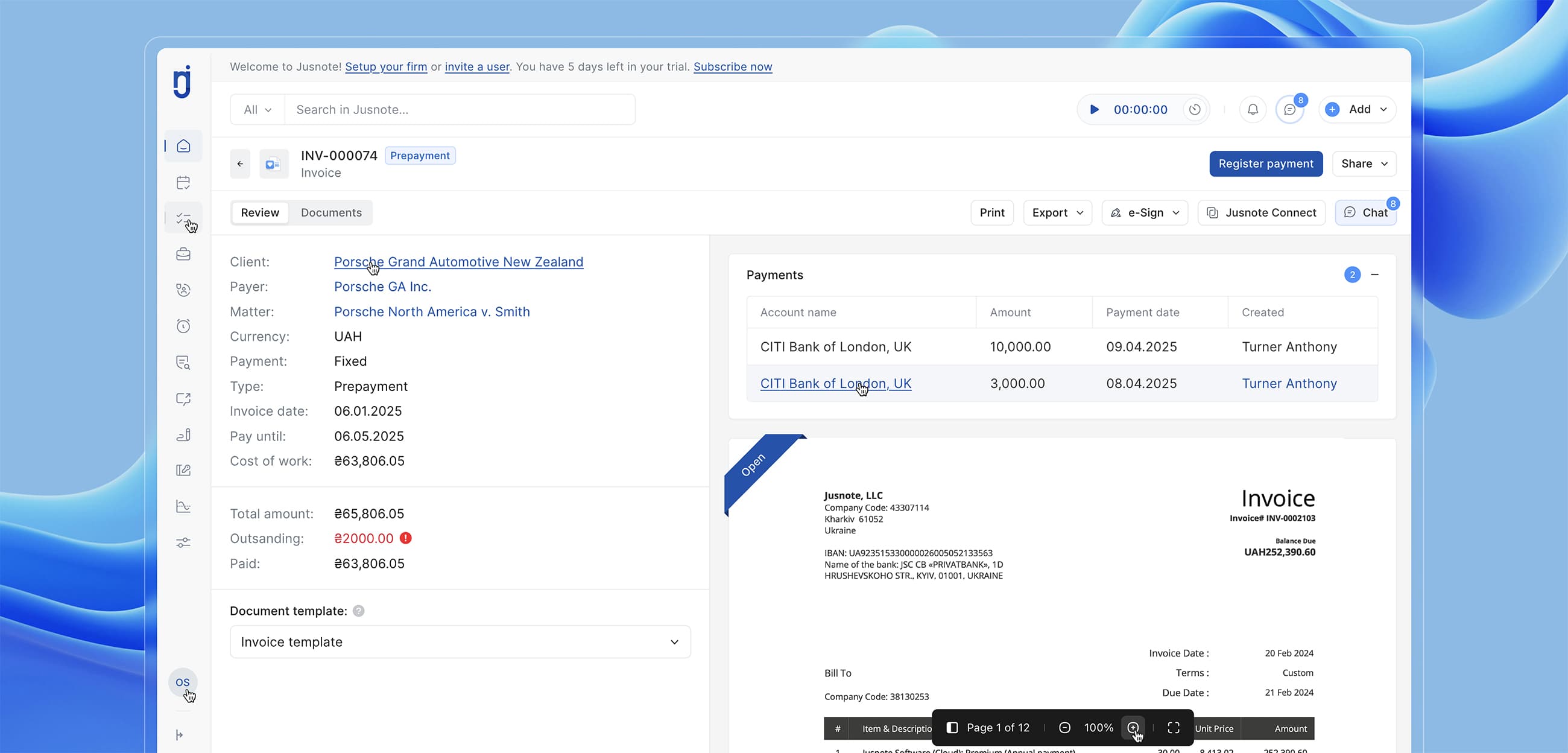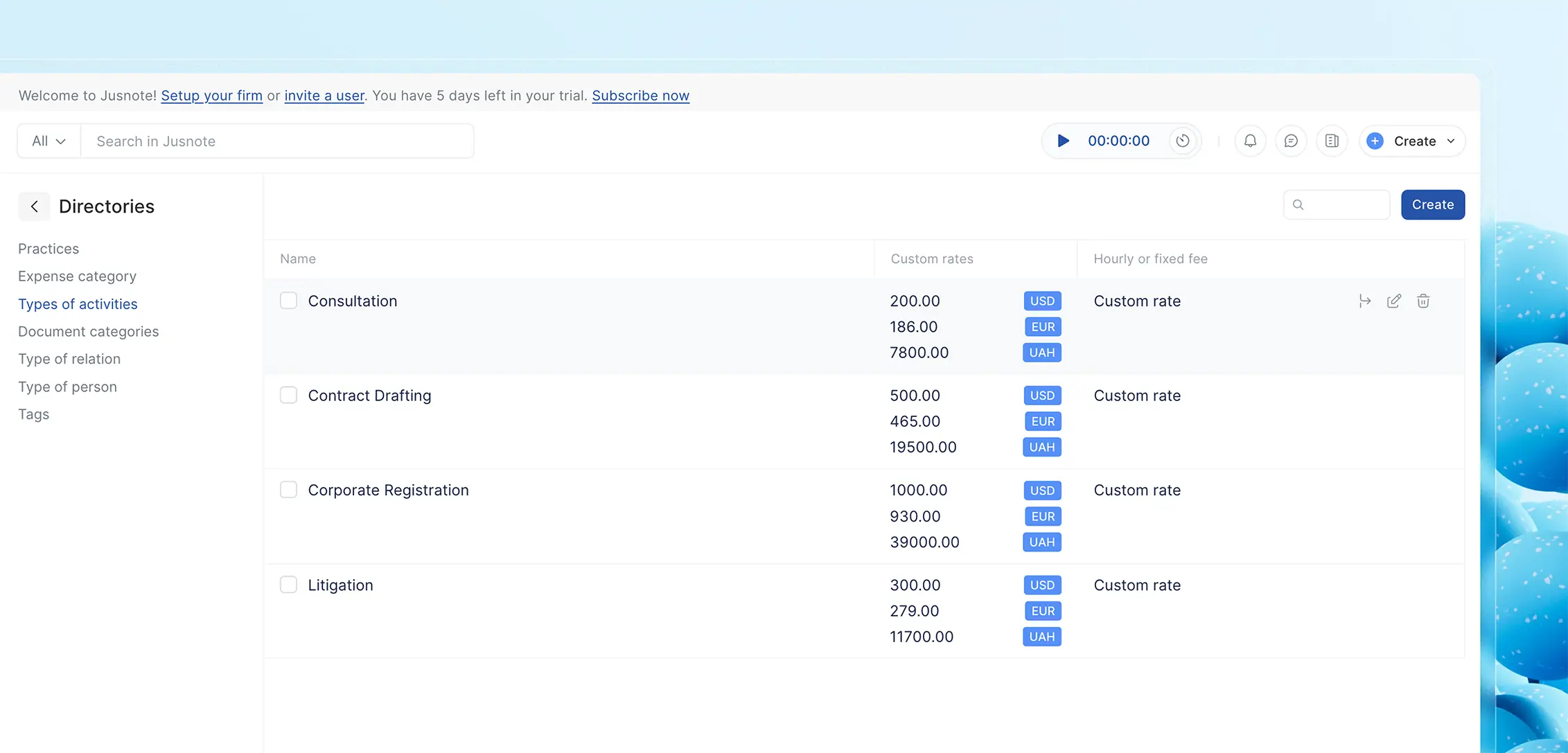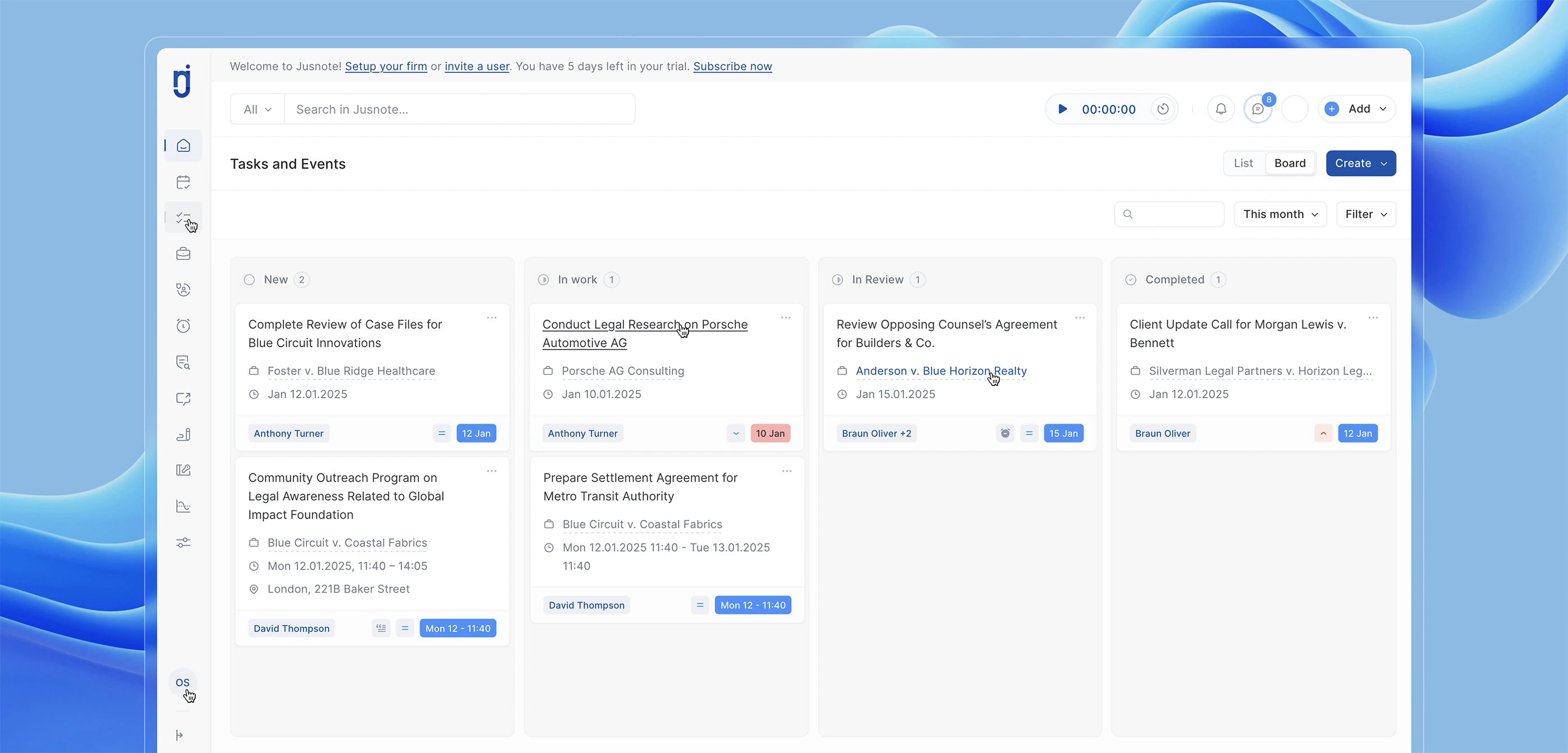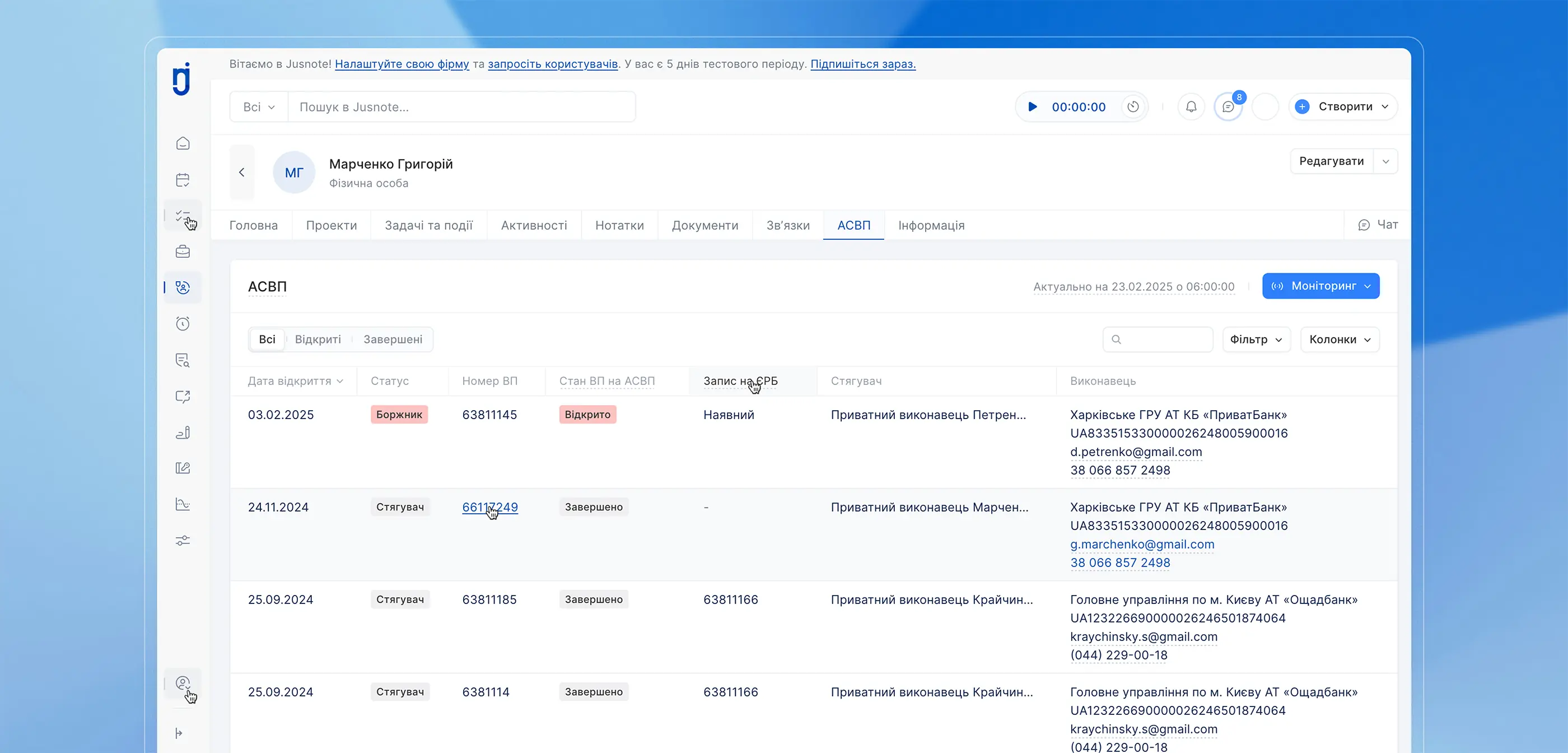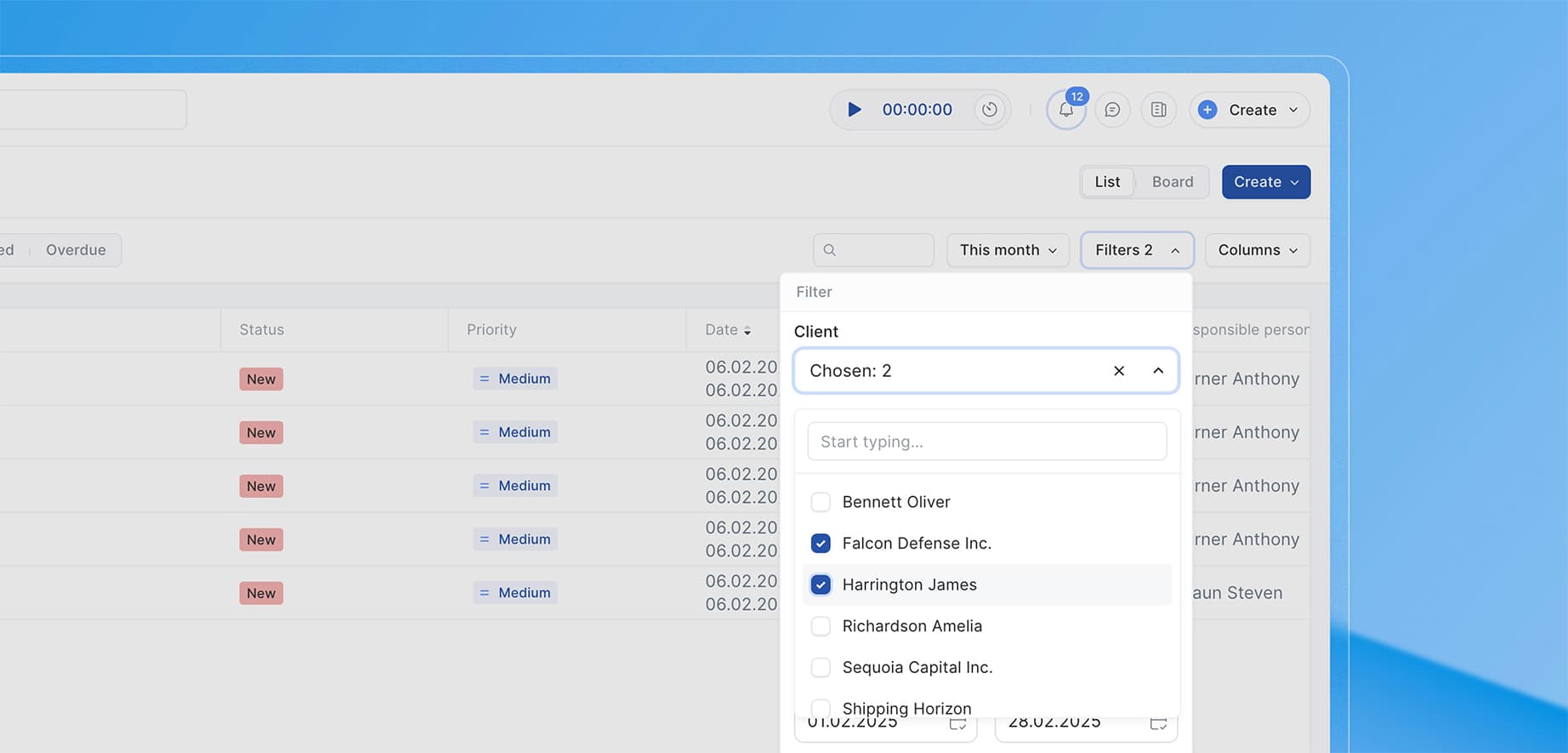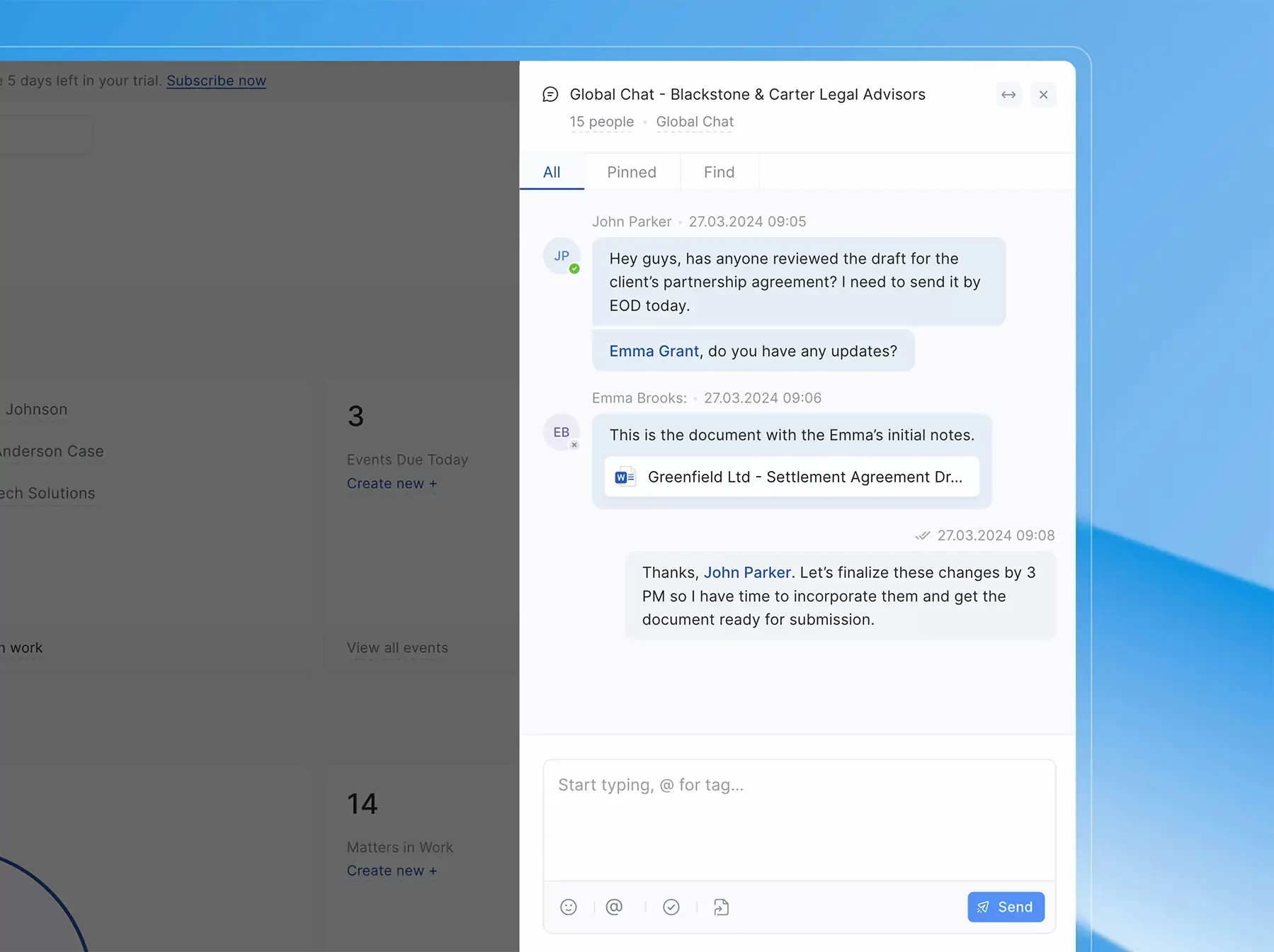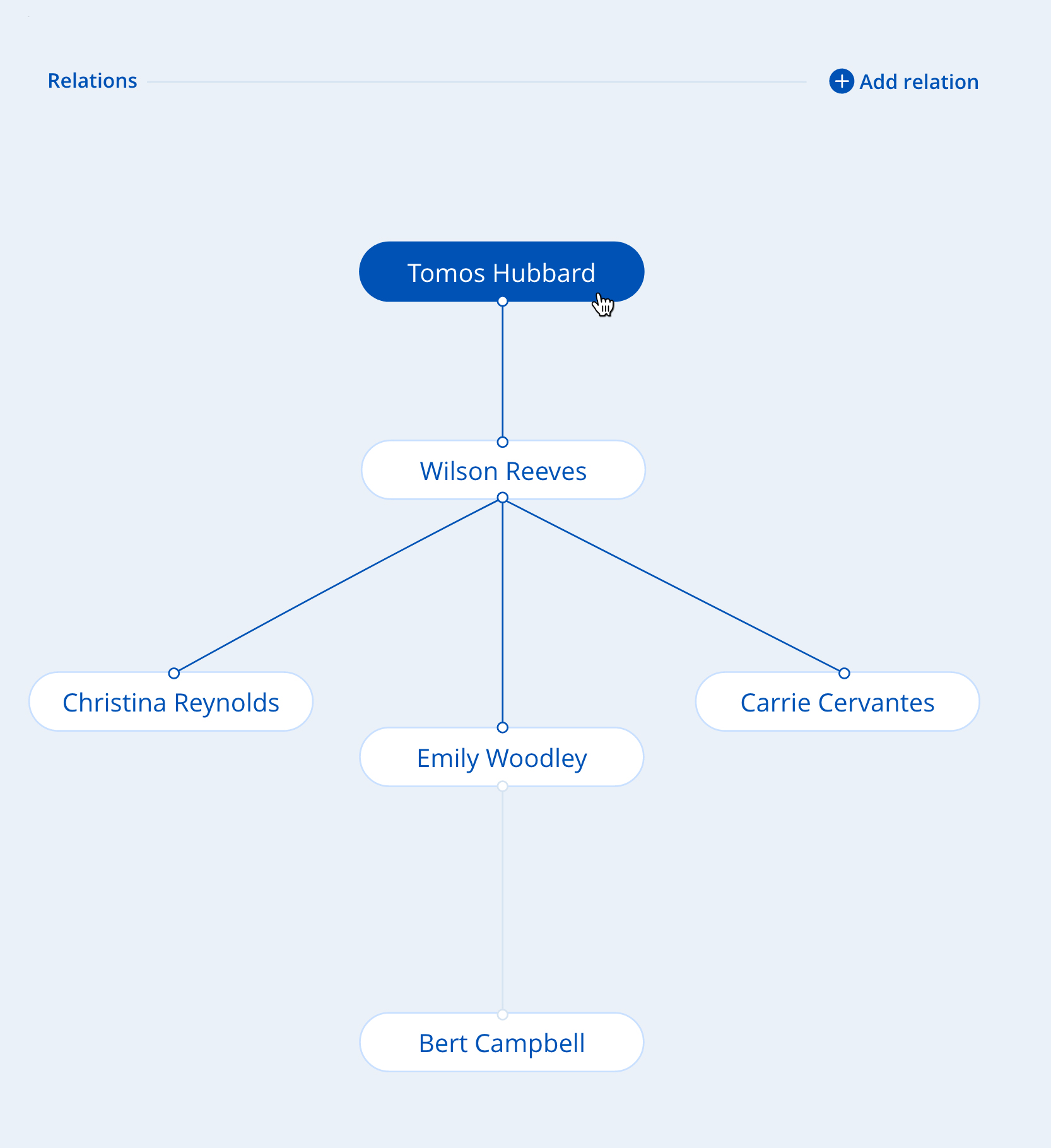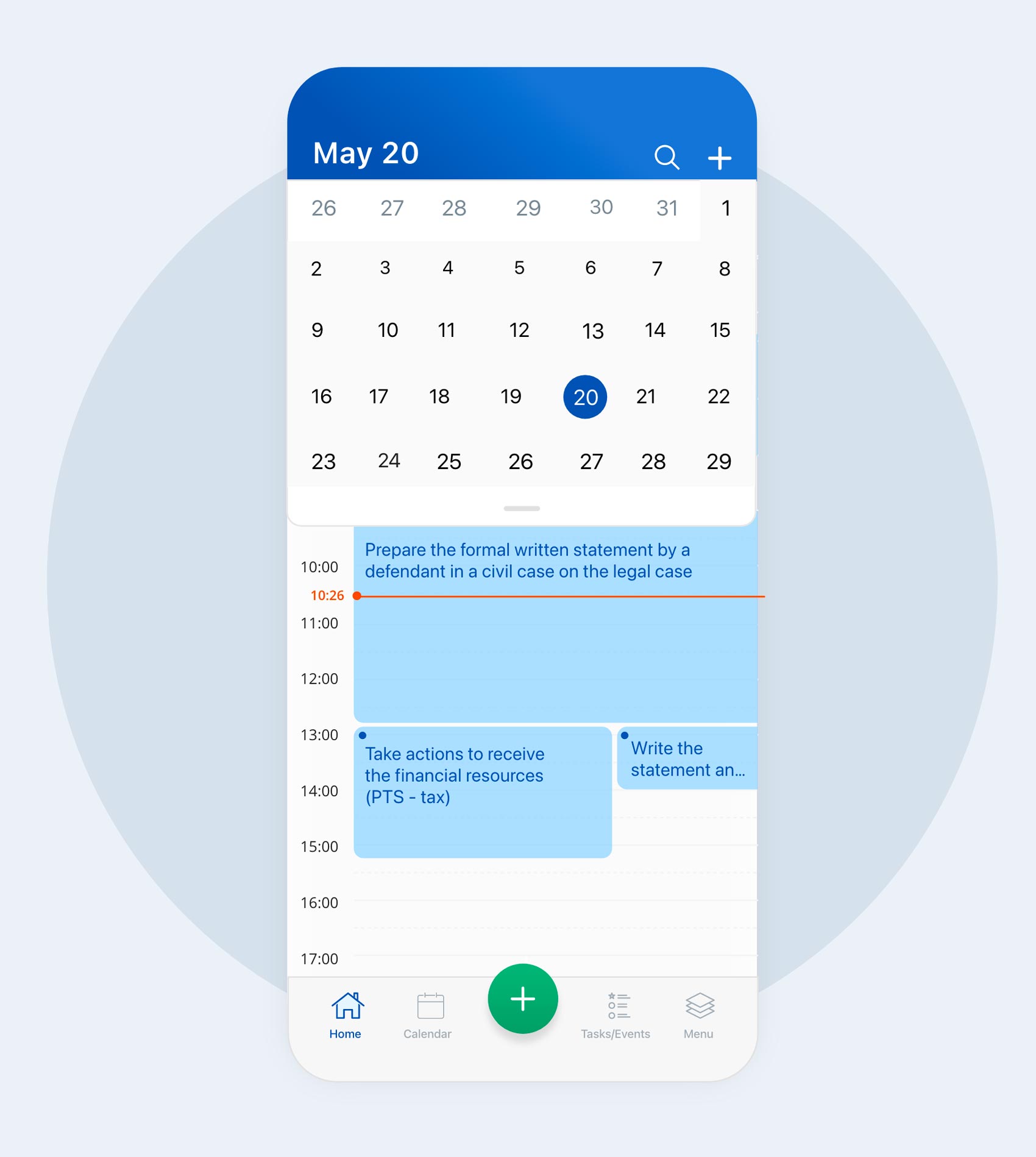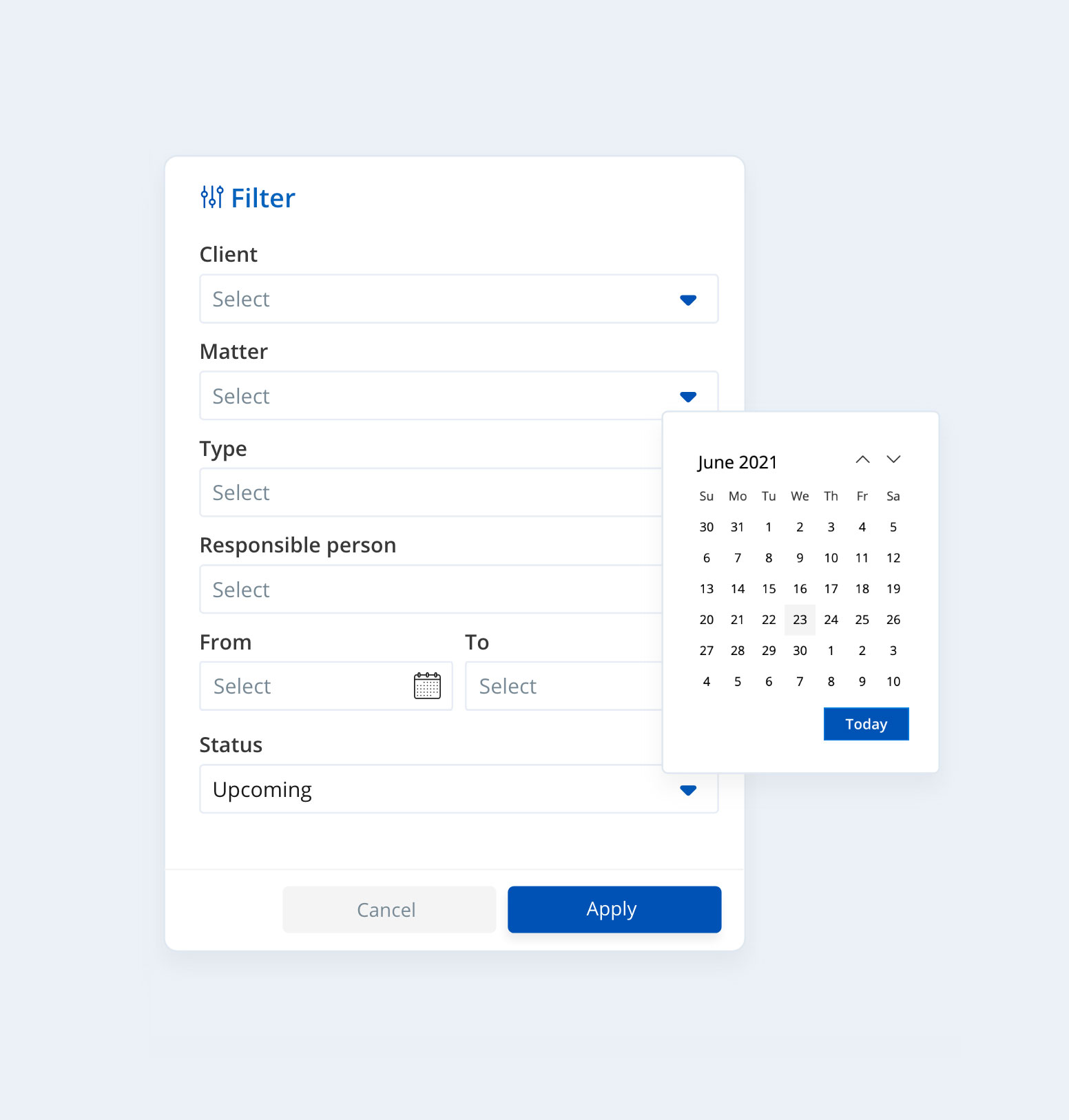No doubt any crisis forces business owners to change the architecture of their internal and external ecosystem, not to mention the war that is now taking place in the center of Europe. This is especially true for large law corporations that have been establishing and streamlining the system of relationships both inside teams and with clients for years so far.
Documenting action items in the event of force majeure is one story (when such emergencies are hypothetical and the regulations are declared on the emergency checklist). But acting if those circumstances take place is a different one. It might sound figurative, of course, but still, it conveys the essence.
Matters of interaction with partners, always-on relationships with clients, and assisting the country became key for lawyers when facing a threat of such magnitude. But at the same time, returning and maintaining a resourceful state and ensuring the safety of family and close ones are no less crucial.
Сhallenges facing Ukrainian lawyers
What are they, in a nutshell, and how to tackle them? Psychological and moral pressure. This points to the importance of staying grounded and resilient in unsettling periods. Thereby learning the core competencies of emotional regulation and intelligence (aka resilience) strategies serve as a foundation for developing a must-have set of skills to keep going, adapt, maintain mental health and manage a legal practice.
There is a stereotype that legal experts might be skeptical of emotions due to their professional rationality and foretold “cold mind”. But emotional intelligence (e.i. the ability to perceive, manage and regulate emotions) vastly influences professional development, mental state, and job satisfaction. Plus, it helps form the skill to put in order the intensity and length of emotions and other behavioral responses.
The academic literature in neuroscience and psychology shows evidence of how fostering emotional intelligence could boost performance and reduce stress in the legal field. Howard Gardner, Professor of Cognition and Education at the Harvard Graduate School of Education, in his book “Frames of Mind: The Theory of Multiple Intelligences,” showed that intelligence is not a single general capacity and can be divided into “multiple non-intellective aspects”. Two primary aspects that make a core of his theory are interpersonal (social) intelligence — which means the ability to understand the intents, stimuli, and desires of others, and intrapersonal (emotional) intelligence, namely the capacity to know the selves, appreciate own feelings, motivations, accept fears and most importantly — regulate emotions while under pressure.
In contrast, psychologist Daniel Goleman views the self-management model as a fusion of six sub-competencies: emotional self-control, transparency, adaptability, achievement, initiative, and optimism.
The way people “decode” circumstances and the environment they live in directly affects how they feel. It’s vital to monitor one’s interpretations, reactions, or impulses that are often subconscious to make conscious decisions (through self-talk, for example) and be aware of cognitive reactions amid tough times. This psychological trick works out for legal professionals as well.
To illustrate, customer queries now stand out by their diversity — from how to evacuate with pets, pay taxes during wartime, whether there are credit holidays in banks, to how to act during martial law. Lawyers, therefore, need to keep their fingers on the pulse and keep up with all regulatory changes to provide information to clients on time. These are now key competencies, though, required from lawyers to remain professional, improve the quality of legal services, and support mental state despite the crisis.
Organizational changes (like a shift in the consulting system, the provision of advocacy services, internal document management, etc.). This is mostly a matter of automating as many work processes as possible to free lawyers from routine tasks and allow them to concentrate more on urgent cases and personal communication with clients. Let’s discuss this in more detail below.
No matter the type of your legal practice, technology can streamline almost every aspect of it – such as client intake, support, document and task management, etc. And it helps ensure continuity for clients. Still, what are the most useful automation tools and techniques to boost your legal practice and minimize mistakes?
Document automation
Law professionals are getting used to legal technology — and, in particular, document automation software. It helps not only manage time and day-to-day tasks but can play the lead in future planning. Now lawyers can keep, prepare, manage and reuse documents and client-related data in one centralized database. Legal software can comprise contracts, agreements, estate planning documents, intake records, and employment contracts, to name a few.
Still, how to handle automated document storage without waiving client confidentiality? It’s easily done with the advent of technology specifically designed for lawyers’ demands. Cloud-based legal system Jusnote allows lawyers to keep cases on track with centralized storage, tasks management, calendaring, invoicing, and streamlined processes, and various in-depth reports. Attorneys can link every contact, document, calendar event, note, time entry, and invoice to the appropriate case to make law practice management tasks flow smoothly and preserve client privacy.
Besides, lawyers can sign documents from all corners of the world using DocuSign in Jusnote. This way, attorneys reduce the costs for administrative tasks, like printing, signing, scanning, and sending documents back and forth by email. Secure electronic signatures allow law firms of all sizes and geography to maintain interactions with clients, partners, and other international organizations even in an emergency.
Calendaring and planning
When it comes to scheduling and tracking appointments with clients or partners, there should be (and exists) a way to avoid endless email communication but remain in touch with clients and support them on time.
How about using technology for those purposes as well? The good news is that legal specialists can plan projects, run client intake, schedule meetings, court dates, events, etc., and automatically sync all those assignments with their calendar. Plus, auto-reminders will be sent automatically to a lawyer before a particular planned activity.
Using Jusnote professional legal calendaring software, you can create and record productivity on tasks, manage events, track time spent on each task, drag & drop completed cases using the Jusnote kanban view, and adapt its functions to the needs and size of your legal firm or practice.
Marketing automation
There’s a need to measure the all-around effectiveness of marketing campaigns, allocating the marketing budget and subsequent investments wisely. First off, to gain profit and pivot leads into potential clients. ROI analysis is the indicator that plays a major role in measuring the return on a particular type of investment (like costs spent on advertising, Google Ads, etc.). It helps calculate the ratio of the overall income from marketing activities to marketing expenses, like salary.
From a marketing standpoint, there is a more precise metric, which is ROAS. ROAS, or return on ad spend, is commonly used to estimate the performance of a singular campaign, e.g., a particular ad or a keyword. It shows law firm marketers what percentage of revenue a firm is getting back, per every dollar spent on the ad, or whether the last targeting changes are doing their job and helping reach desired objectives.
If your legal firm has social media accounts that actively engage clients, there should be a way to manage content for sharing and analysis. Lawyers can use some tools to automate posting on social media, like HubSpot or Buffer, which allow law professionals to integrate all accounts and schedule social media posts to be displayed automatically and at once in a single dashboard.
To sum up, tech tools for lawyers serve a much broader purpose than just automating everyday tasks. They help advance a legal career, outperform competitors, and foster relations with clients even during difficult times.
![]()
Elena Ivanenko
Author, Content Creator at Jusnote



 Jusnote Newsroom
Jusnote Newsroom  Search Newsroom
Search Newsroom
 Back to all publications
Back to all publications

